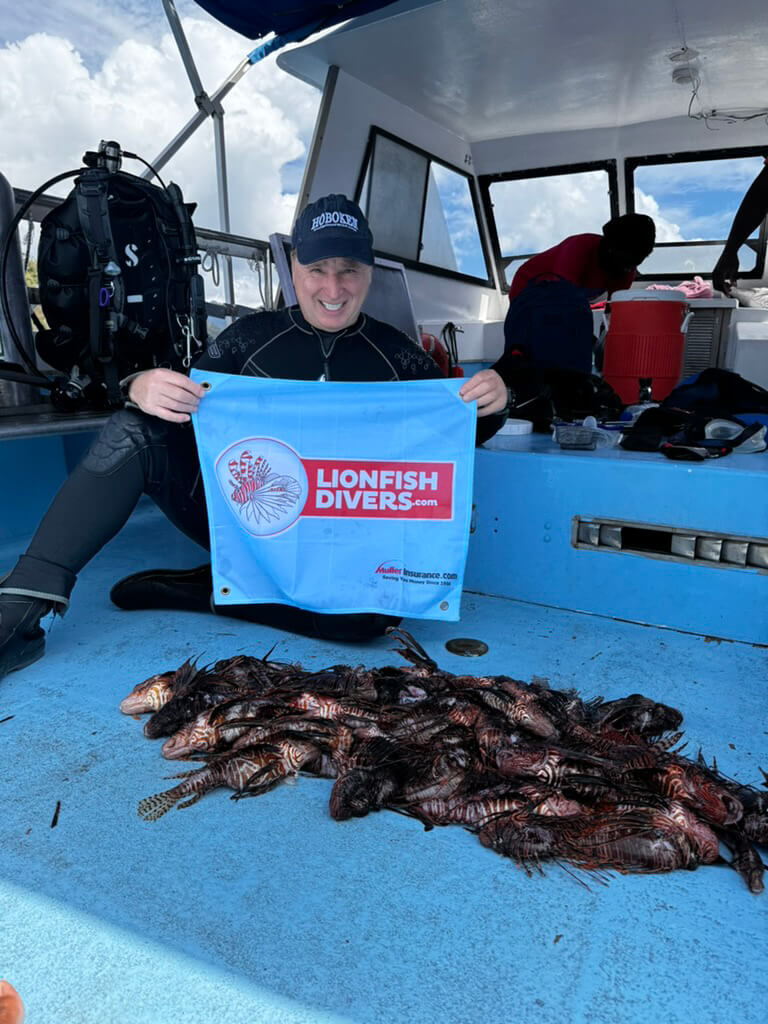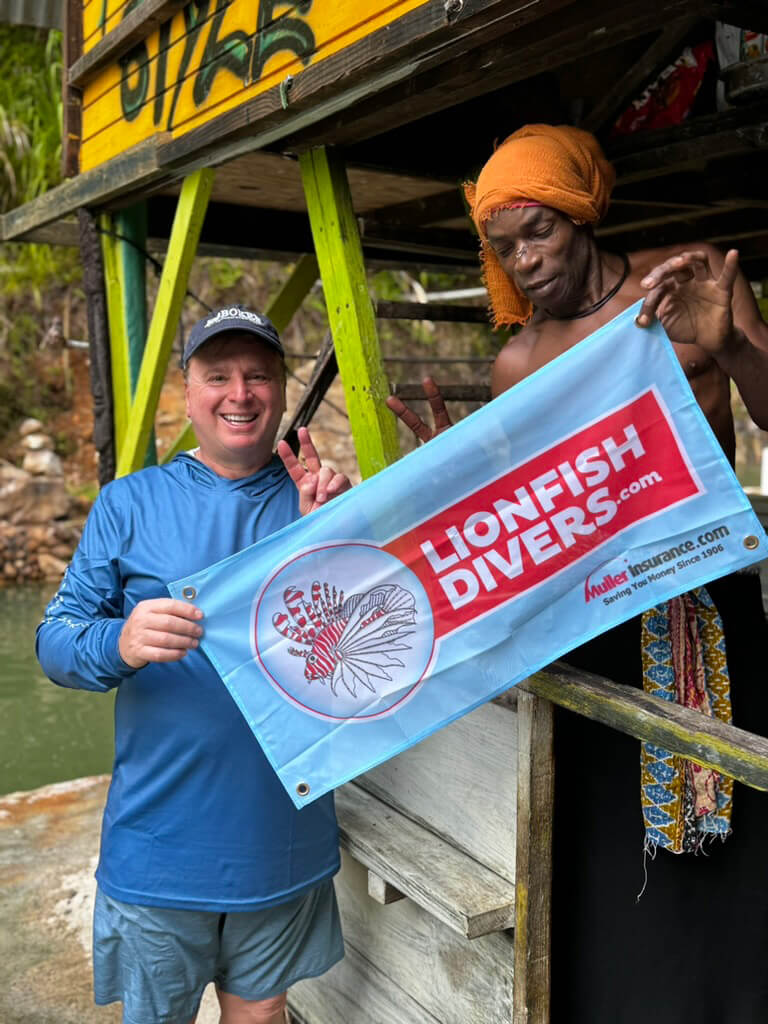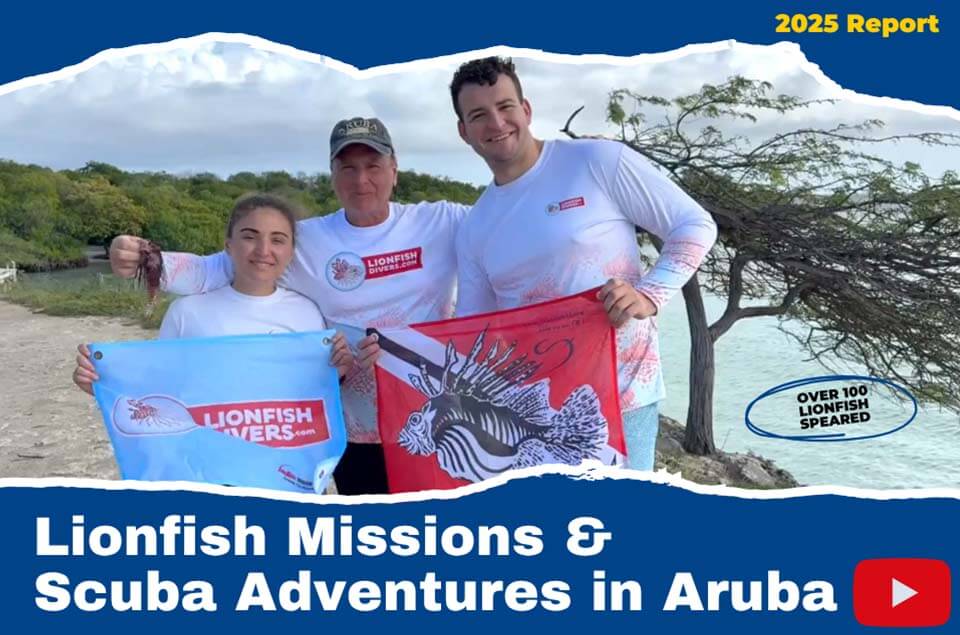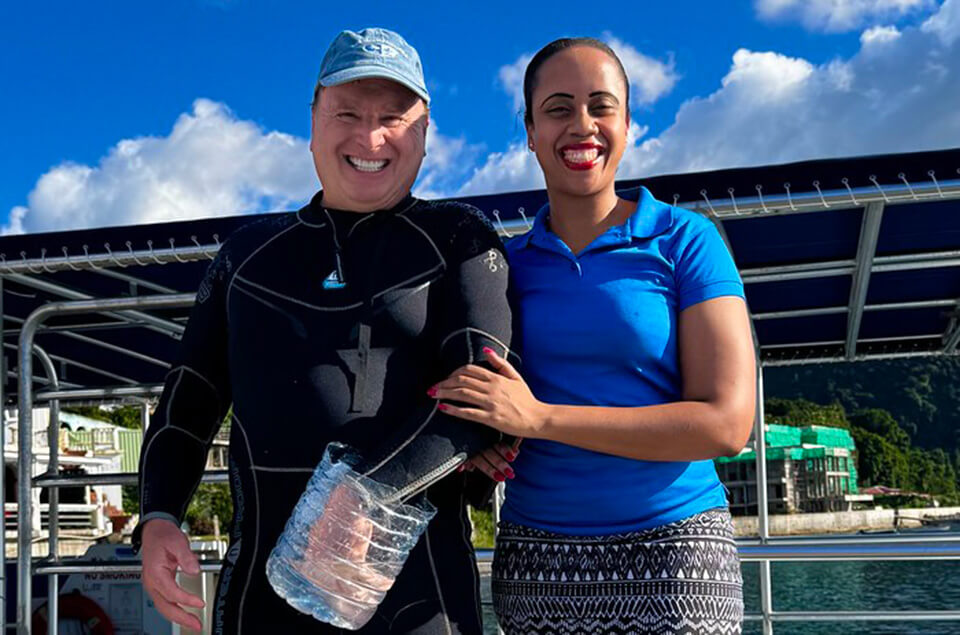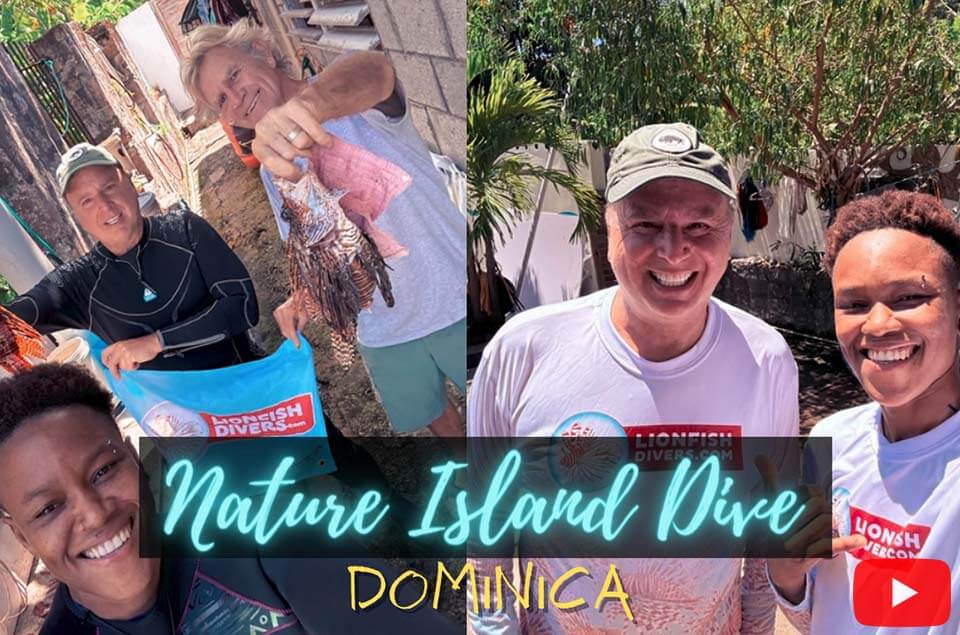A Year of Lionfish Hunting in Honduras, Aruba, Mexico, and Dominica
Roger J. Muller, a dedicated environmentalist and passionate diver, has spent the past year intensifying his efforts to combat the invasive lionfish population across the Caribbean. From the vibrant reefs of Honduras to the serene waters of Aruba and from the sun-drenched shores of Mexico to the lush landscapes of Dominica, Muller has tirelessly worked to remove these voracious predators from the ocean.
A Year of Dedication
Muller’s mission this past year has taken him to some of the most beautiful yet ecologically vulnerable areas in the Caribbean. His efforts are part of a broader campaign to protect the delicate marine ecosystems threatened by the rapid spread of lionfish. These efforts culminated in two remarkable culling operations in Dominica, where Muller successfully removed 305 lionfish in November 2023 and another 262 in April 2024. His work in Dominica alone highlights the severity of the lionfish invasion and the relentless dedication required to mitigate their impact.
The Long Battle Against Lionfish
For the past 14 years, Roger J. Muller has been on the front lines of the battle against lionfish. These invasive species, originally from the Indo-Pacific, have wreaked havoc on Atlantic and Caribbean ecosystems. Without natural predators in these regions, lionfish populations have exploded, preying on native fish and competing for resources.
Muller’s journey began with a simple dive and a profound realization of the threat posed by lionfish. Over the years, his commitment has only grown stronger. Working with organizations like Lionfishdivers.com and Lionfish University Co-founders Stacy Frank and JV Hart and collaborating with renowned scientists and marine biologists like Alex Fogg of Florida and NOAA’s Dr. Steve Gittings, Muller has become a key figure in the lionfish removal community.
Partnerships and Collaborations
Roger J. Muller’s efforts are bolstered by his collaborations with experts and organizations dedicated to marine conservation. Lionfishdivers.com has provided a platform for divers and enthusiasts to join the cause, offering resources and organizing events to increase awareness and action. Lionfish University, an educational organization, has been instrumental in conducting research and educating the public about the dangers of lionfish.
Working alongside scientists like Alex Fogg, Muller has contributed to research and strategies aimed at controlling the lionfish population. Fogg, a marine biologist from Florida, has been a significant ally, bringing scientific expertise and innovative approaches to the table. Together, they have explored various methods to effectively reduce lionfish numbers and protect native marine life.
The Impact of Muller’s Work
The impact of Roger J. Muller’s work is evident in the numbers. Removing hundreds of lionfish from the waters of Dominica is no small feat. Each lionfish removed represents a step towards restoring balance in the ecosystem, allowing native species to recover and thrive. Muller’s efforts have also inspired a growing community of divers and environmentalists to take action, creating a ripple effect that extends beyond the regions he has directly impacted.
In Honduras, Aruba, and Mexico, Muller’s presence has brought attention to the lionfish crisis, encouraging local communities and governments to support removal efforts. His work serves as a model of how individuals can make a significant difference in environmental conservation.
Looking Ahead
As Roger J. Muller continues his mission, the future looks promising for the fight against lionfish. His dedication and the collaborative efforts of organizations and individuals worldwide are crucial in mitigating the impact of this invasive species. The lessons learned and the successes achieved over the past year provide a foundation for ongoing and future initiatives.
Muller’s story is one of perseverance, passion, and hope. It reminds us that with commitment and collaboration, we can protect our oceans and preserve their beauty and biodiversity for generations to come.
Written by V. Karalewich.

